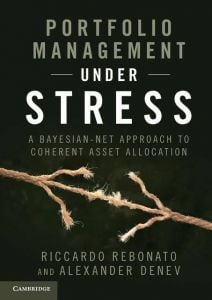
Multi-Asset
For more than 50 years, the investment industry has mostly focused on security selection as the main source of added value. This focus has somewhat distracted the industry from another key source of added value: asset allocation decisions. In the face of recent crises, and given the intrinsic difficulty of delivering added value through security selection decisions alone, the relevance of the old paradigm has been questioned with heightened intensity, and a new paradigm is starting to emerge where asset allocation decisions appear as the main source of added value from the investment industry.
The ambition of this research programme is to develop new academic insights that can be used to design improved forms of asset allocation solutions. The core challenge in the design of such asset allocation solutions is essentially to find optimal ways of spending dollar and risk budgets that investors are reluctant to set, with a focus on allowing the greatest possible access to performance potential while respecting these budgets.
PORTFOLIO MANAGEMENT UNDER STRESS: A BAYESIAN-NET APPROACH TO COHERENT ASSET ALLOCATION
by Riccardo Rebonato
Portfolio Management under Stress offers a novel way to apply the well-established Bayesian-net methodology to the important problem of asset allocation under conditions of market distress or, more generally, when an investor believes that a particular scenario (such as the break-up of the Euro) may occur. Employing a coherent and thorough approach, it provides practical guidance on how best to choose an optimal and stable asset allocation in the presence of user specified scenarios or 'stress conditions'. The authors place causal explanations, rather than association-based measures such as correlations, at the core of their argument, and insights from the theory of choice under ambiguity aversion are invoked to obtain stable allocations results. Step-by-step design guidelines are included to allow readers to grasp the full implementation of the approach, and case studies provide clarification. This insightful book is a key resource for practitioners and research academics in the post-financial crisis world.
Cambridge University Press - 2013
This programme has benefited from the support of Lyxor Asset Management for research on dynamic forms of risk parity strategies, as well as the efficient harvesting of alternative risk premia across asset classes.


